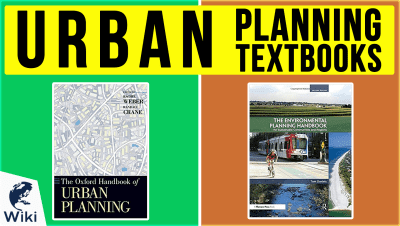7 Conservation Organizations Making A Difference
Natural lands and wildlife are an important part of ecosystems across the planet. Unfortunately, human development is often a threat to these habitats. That's why organizations like the ones listed here work to protect and preserve vulnerable areas for future generations of people and animals to enjoy. This video was made with Ezvid Wikimaker.
Groups Working To Conserve Natural Ecosystems
| Organization | Headquarters Location | Mission |
|---|---|---|
| Habitat Conservation Trust Foundation | Victoria, BC | Improve the conservation outcomes of British Columbia’s fish and wildlife, and the habitats in which they live |
| Land Conservancy of New Jersey | Boonton, NJ | Preserve land and water resources, conserve open space, and inspire and empower individuals and communities to protect natural land and the environment |
| Tompkins Conservation | San Francisco, CA | Create national parks, recover imperiled wildlife, implement ecological agriculture, promote healthy local communities, and support leading-edge activism |
| Critical Ecosystem Partnership Fund | Arlington, VA | Provide grants to nongovernmental and private sector organizations to conserve biodiversity hotspots, some of Earth's most biologically rich yet threatened ecosystems |
| Peace Parks Foundation | Stellenbosch, South Africa | Facilitate the establishment of transfrontier conservation areas (peace parks) in southern Africa |
| Nature and Culture International | Del Mar, CA | Conserve biologically diverse landscapes in Latin America, in concert with local cultures, for the well-being of the planet |
| Uganda Conservation Foundation | Kampala, Uganda | Protect Uganda’s national parks, protected areas, and conservancies |
Wildlife Conservation Facts
- There are more than 1,000 species worldwide defined as endangered
- 4% of the mammals in the world are wild animals. 36% are human beings and 60% are farm animals
- The global wildlife population decreased in size by approximately 52% between 1970 and 2010
- 30% to 50% of all species are possibly heading toward extinction by mid-century
- Freshwater ecosystems are home to more than 100,000 known species of plants and animals
- Freshwater habitats lost 83% of their vertebrate populations between 1970 and 2014
- There are approximately 26,000 wild polar bears, but this population is expected to decline 30% by 2050
- 1 kg of ivory can sell for as much as $1,000
- An average of 96 elephants are killed for their ivory in Africa each day
- More African elephants are being killed for ivory than are being born
5 Tips For Responsibly Viewing Wildlife
According to the U.S. National Park Service
- Learn about wildlife, viewing sites, and local regulations before you go
- Use binoculars and zoom lenses to get a good look without getting too close
- Never touch, handle, or frighten wildlife
- Store your food securely and properly dispose of trash
- Always use common sense and stay safe
The Basics Of Conservation & Restoration Ecology
In Depth
Efforts to conserve Earth's ecosystems become more urgent every year, as species and habitats rapidly dwindle and disappear. More and more, human activity encroaches on regions crucial to sustaining the world's biodiversity. In the face of these ecological challenges, organizations worldwide are emerging to help protect the planet's rich diversity of living things. Presented here, in no particular order, are seven groups working to sustain and restore environments under threat.
Opening our list at #1 is The Habitat Conservation Trust Foundation, a non-profit charitable organization committed to supporting preservation efforts, on behalf of fish, wildlife, and natural ecosystems in British Columbia. Funded in large part by hunters, anglers, and outdoor enthusiasts, the Foundation awards grants for projects to protect and restore native species. They also sponsor educational programs to promote public enthusiasm for ecological stewardship, and initiatives to acquire land rights for conservation purposes.
Each year, HCTF provides funding to more than one hundred fifty projects throughout the region, from surveys of grizzly bear populations, to invasive species controls, to outdoor education initiatives for children. Among their ongoing efforts include caribou habitat restoration, assistance for non-governmental organizations performing land stewardship work, and citizen science programs that involve members of the public in gathering research data. Anyone wishing to help support the Foundation's mission can make a donation either online or by mail.
Among their ongoing efforts include caribou habitat restoration, assistance for non-governmental organizations performing land stewardship work, and citizen science programs that involve members of the public in gathering research data.
#2 is The Land Conservancy of New Jersey. Recognized by the National Land Trust Accreditation Commission, this organization strives to preserve productive acreage, water resources, open space, and natural environments. The heart of their mission is providing assistance to landowners, both private and municipal, who wish to set aside property for conservation purposes. They partner with groups and communities throughout the state, offering planning, advising, and technical support for management of protected areas.
The Land Conservancy directly oversees several nature preserves, ensuring that important sources of water and homes for biodiversity are maintained for future generations. They provides spaces for locals to interact with the natural world, whether through gardening, recreation, or educational programs. Their dedicated staff and interns work to restore wild areas and combat invasive species, preserving the region they call home. The organization offers many ways to get involved, including donations, volunteering, and sponsorship of events.
Coming in at #3 is Tompkins Conservation, a publicly supported charity that works primarily in South America, creating parklands, conserving biodiversity, and restoring wildlife and habitats. With a firm belief in the importance of wilderness for ecological health, their work has a strong focus on helping to designate and maintain national parks, offering large protected spaces for nature to thrive. Collaborating with local governments and individuals, they seek to ensure that these areas balance human engagement with natural beauty.
With a firm belief in the importance of wilderness for ecological health, their work has a strong focus on helping to designate and maintain national parks, offering large protected spaces for nature to thrive.
In addition to helping protect wild lands, Tompkins Conservation works to restore damaged ecosystems, with methods like reforestation or reintroduction of native species. They also support ecological agriculture initiatives, promoting approaches to food cultivation that preserve biodiversity and nurture the landscape. The organization pairs these efforts with activism, advocacy, and community-building. Those wishing to contribute to Tompkins Conservation can donate, volunteer, or book a stay in one of the parks the group manages and maintains.
Our #4 is The Critical Ecosystem Partnership Fund. This group was founded to confront threats to biodiversity by supporting local conservation efforts, in developing countries and transitional economies, to protect some of Earth's most biologically rich, and most threatened, terrestrial ecosystems. CEPF funds preservation projects led by civil society organizations, from small farmers' cooperatives to universities and international conservation groups. Their focus is on providing communities with the tools to care for the lands they inhabit.
CEPF targets its grants to projects within biodiversity hotspots, regions that combine rich species variety and alarming habitat loss. The human inhabitants are often impoverished, and may lack the resources to fight effectively against environmental degradation. CEPF aims to empower local groups in critical areas, helping them to organize, collaborate, and find solutions that are both ecologically and economically sustainable. Organizations looking to take part in the work of ecological preservation can submit applications, in response to the Fund's open calls for grant proposals.
Organizations looking to take part in the work of ecological preservation can submit applications, in response to the Fund's open calls for grant proposals.
Next on the list is #5, Peace Parks Foundation, which seeks to restore and preserve important ecosystems that transcend man-made boundaries. Their work focuses on the protection and restoration of transfrontier conservation areas - large ecological regions that straddle national borders - throughout southern Africa. Requiring cooperation between countries, as well as contributions from private industry, these TFCAs provide corridors for wildlife migrations and safe zones where threatened species can recover.
PPF promotes responsible land use to ensure that humans and wildlife can coexist. They provide logistical support to park rangers, who are able to work across borders to fight poaching and illegal logging within TFCAs. These enforcement efforts are paired with the Community Development Programme, which helps to create sustainable ways for local populations to prosper. Readers interested in contributing to Peace Parks Foundation can donate online, with the option to direct their gift towards a project of their choice.
At #6 we have Nature and Culture International, a conservation group that supports large-scale preservation efforts in critical Latin American ecosystems. Committed to collaborating with indigenous peoples, their approach begins with input from inhabitants of threatened areas, who outline their specific conservation goals. From that starting point, the organization contributes expertise to the process of planning, mapping, and partnering with governments in the region, to create protected reserves.
From that starting point, the organization contributes expertise to the process of planning, mapping, and partnering with governments in the region, to create protected reserves.
Issues of particular focus for Nature and Culture are greenhouse gas sequestration, accomplished through safeguarding forests and other carbon sinks, and the protection of crucial water resources. They also help build sustainable development initiatives, creating economic avenues that preserve ecosystems, while still enabling indigenous people to thrive. Their combined efforts have conserved millions of acres within some of the world's richest habitats. Individuals and groups who would like to fund this ongoing work can make a donation online.
Our final entry is #7, the Uganda Conservation Foundation, a not-for-profit group dedicated to maintaining national parks, protected areas and conservancies. Working closely with their local government partner, Uganda Wildlife Authority, UCF supports and coordinates efforts to recover neglected sanctuaries, as well as providing much-needed equipment and assistance to the ranger teams that guard wild species against poaching. They help to develop more effective strategies to combat the ecological threat posed by illegal hunting and trapping.
A major component of UCF's approach to conserving wildlife is promoting engagement with local communities. Since poverty is a significant factor driving poaching, the Foundation helps create alternate means of support for inhabitants, including employment opportunities restoring and maintaining the parks themselves. The result is a populace both emotionally and economically invested in caring for the environment. UCF welcomes donations, at both the individual and corporate levels, to fund their mission of preservation.





















